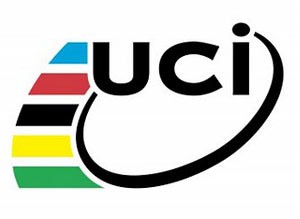“This is too important for rushed discussions, or hasty decisions,” says Pat McQuaid
 The International Cycling Union (UCI) has taken the decision to disband the Independent Commission (UCIIC) that it itself set up in late November last year, in favour of the creation of a Truth and Reconciliation Commission (TRC). The UCIIC was called to investigate the findings of the United States Anti-Doping Agency (USADA) reasoned decision into the doping activities of Lance Armstrong and his US Postal/Discovery Channel team, but has been a source of conflict ever since.
The International Cycling Union (UCI) has taken the decision to disband the Independent Commission (UCIIC) that it itself set up in late November last year, in favour of the creation of a Truth and Reconciliation Commission (TRC). The UCIIC was called to investigate the findings of the United States Anti-Doping Agency (USADA) reasoned decision into the doping activities of Lance Armstrong and his US Postal/Discovery Channel team, but has been a source of conflict ever since.
Both USADA and the World Anti-Doping Agency (WADA) withdrew their support from the UCIIC recently, over what they viewed as the unacceptably narrow terms of reference drawn up by the UCI. The three-member UCIIC panel urged the UCI to consider a TRC to encourage former dopers to come forward without consequences, but the UCI refused, citing the WADA code.
Having consulted with WADA again, however, the UCI has decided on the TRC option, which – it says – makes the UCIIC obsolete.
“As I said last Friday, we have listened carefully to the views of WADA, USADA and cycling
stakeholders and have decided that a truth and reconciliation process is the best way to examine the culture of doping in cycling in the past and to clear the air so that cycling can move forward,” said UCI president Pat McQuaid.
“Over the weekend I spoke to John Fahey, President of WADA. He confirmed WADA’s willingness to help the UCI establish a Truth and Reconciliation Commission (TRC), as well as saying that WADA had no confidence in the existing Independent Commission process.
“Given this development, the UCI Management Committee today decided that the federation could no longer fund a procedure whose outcome is likely to be rejected by such an important stakeholder. We have therefore decided to disband the Independent Commission with immediate effect.
“We do this with regret, but given the stance of WADA we did not see any other option. I would like to thank Sir Philip Otton, Baroness Tanni Grey-Thompson and Malcolm Holmes QC for their work which I am sorry they will not be able to complete.
“We will now focus our efforts on establishing a TRC, with which we expect WADA to be fully engaged, to look at doping in professional cycling, as well as the allegations contained in the USADA reasoned decision. The work that has so far been undertaken by the Independent Commission will be shared with the TRC.”
With the UCIIC disbanded, it now appears that there will no longer be an independent enquiry into the Lance Armstrong affair and the UCI’s role in it. Instead, all former dopers will be urged to come forward and speak honestly about their activities without fearing the consequences.
Despite calls by the UCIIC panel to introduce the TRC as soon as possible, there is currently no timetable for its introduction. It is expected to begin before the end of the year, however, and the UCI has committed to publishing a full report in its completion.
With the withdrawal of WADA and USADA’s support from the UCIIC, however – albeit thanks to the UCI’s refusal to change the terms of reference, and to agree to a TRC – the UCI is seeking to save money and avoid the cost of paying for both.
“This is too important for rushed discussions, or hasty decisions,” said McQuaid. “It is completely unrealistic to expect that we and WADA can sort through all the details of setting up a Truth and Reconciliation Commission in just a couple of days, based on an arbitrary deadline set by the Independent Commission of Thursday.
“There is still a huge amount to discuss before we can finalise a detailed legal framework, including how such a TRC, which is completely unprecedented in sport, should be funded now that WADA contrary to earlier indications refuses to contribute financially. This is something that will be discussed fully at the management committee meeting on Friday. I would stress that, while I am committed to a TRC, it needs to be a process which is in the best interests of our sport and our federation – and which also does not bankrupt it.”
“I hope the lessons learned from the truth and reconciliation process will help in particular to educate young riders and to help eradicate doping in its entirety from cycling.”